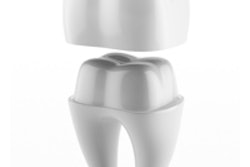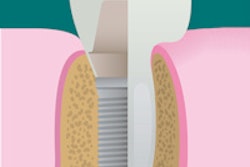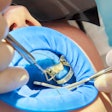
The average person may have a limited, if any, idea of what endodontists do. As specialists, endodontists' business is heavily dependent on referrals from general practitioners (GPs), and with that in mind, the American Association of Endodontists (AAE) set out to learn about the referral habits of GPs in a 2009 survey. Now they've updated that effort and published the results in the Journal of Endodontics (JOE, February 2014, Vol. 40:2, pp. 204-210).
The researchers found that GPs have an overwhelmingly positive perception of endodontists (94%), but they referred only 43% of patients who needed root canal treatment to them. They also found that 38% of the participating GPs said that they frequently performed root canals that should have been referred out to an endodontist. That represented a slight increase from the 2009 study, in which 33% of GPs expressed this opinion.
Aspects of the relationship between the two parties surfaced in the study. "The perception that endodontists are partners in patient care and endodontic services are worth the cost was strongly related to the likelihood of referring (p < 0.05)," the researchers wrote.
That's where the focus should to be, fostering an open line of communication where a GP can reach out and discuss a case, lead study author James Wolcott, DDS, said during an interview with DrBicuspid.com. Dr. Wolcott is a private practitioner in Santa Fe, NM; a clinical assistant professor at the University of Colorado School of Dentistry; and a diplomate of the American Board of Endodontics who is also a member of the JOE's editorial board.
"One of the more notable talking points that we're taking back to our members is that you need to be available for those consults." Dr. Wolcott explained. "It can't be a one-way street where you say, 'Just send me patients.' There needs to be give and take, respectful communication."
He also added perspective to the proportion of root canal cases that end up in the hands of endodontists. "There's nothing magical about the 43% number; it doesn't tell us much," he explained. "Rather, the numbers that stand out to me are the decision-making numbers." The fact that roughly one-third of GPs have seen root canals that weren't performed by endodontists but should have been speaks to the need for more communication.
"What that suggests is, you've got some dentists who are basically getting in over their head on occasion," Dr. Wolcott said.
Gathering the data
Previous surveys focused largely on the referral process from the endodontists' perspective, not that of the GPs. That motivated the American Association of Endodontists to launch its first survey of GPs in 2009. "We know from other proprietary research from the AAE that patients, by and large, trust their GP to guide them on root canal treatment," Dr. Wolcott said. "Based on that research, we wanted to find or identify the predictive factors, things that lead GPs to make referrals."
In the 2012 update of the previous AAE survey, the researchers emailed questionnaires to 56,006 U.S.-based GPs, 5,737 of whom opened the survey. Of those, 786 completed the questionnaire. The respondents were evenly spread geographically and in terms of the population density of their location. Men, although a large majority at 79%, ceded ground to women compared with 2009 when 83% were men.
According to the survey, 64% (n = 502) of GPs typically refer their cases to two or three endodontists (38% [n = 297] and 26% [n = 205], respectively), which is consistent with the results of the previous survey.
The researchers found the results about the types of root canal cases that GPs were willing to take on themselves or refer particularly interesting. They found that 71% of GPs said they would perform root canals in cases that were not at all complicated. "That makes sense," Dr. Wolcott said. "If, however, the GPs judged the case as 'moderately complicated,' then you still had 63% who were willing to tackle those cases." Lastly, 19% of GPs said they were likely to perform endodontic procedures on teeth they deemed to be "very complicated."
That last group reflects a certain segment of dentists who are unlikely to change their referral habits and are "set in their ways," Dr. Wolcott said. "The research touched on that: 32% of dentists refer less than 10% of their root canal cases to specialists. So they have their habits." In contrast, 20% of GPs refer 90% or more.
But it is the "middle-ground" dentists looking at cases that could go either way, where Dr. Wolcott thinks functional partnerships between endodontists and GPs can most benefit patients. "GPs don't need help with those straightforward, 'I'm going to do it' or really tough retreatments, where it clearly needs to be sent out," Dr. Wolcott said. "It's guiding them in the middle, when maybe it would be a better choice to refer. But we need to have that relationship -- there needs to be a partnership there so we can have that dialogue."
The survey also found that a respected colleague's recommendation (83%, n = 640) is an effective way to initially learn more about local area endodontists, and continuing education classes, seminars, study clubs, or articles by endodontists (66%, n = 507) were effective as well. But complimentary meals with endodontists are largely an ineffective way to learn about local endodontists, and showing signs of appreciation, such as giving holiday gifts and fruit baskets, is not a very effective way to foster relationships with endodontists.
So once the connection is made, endodontists need to make themselves available. "That comes back to what we are looking for: how to build that relationship," Dr. Wolcott said.



















